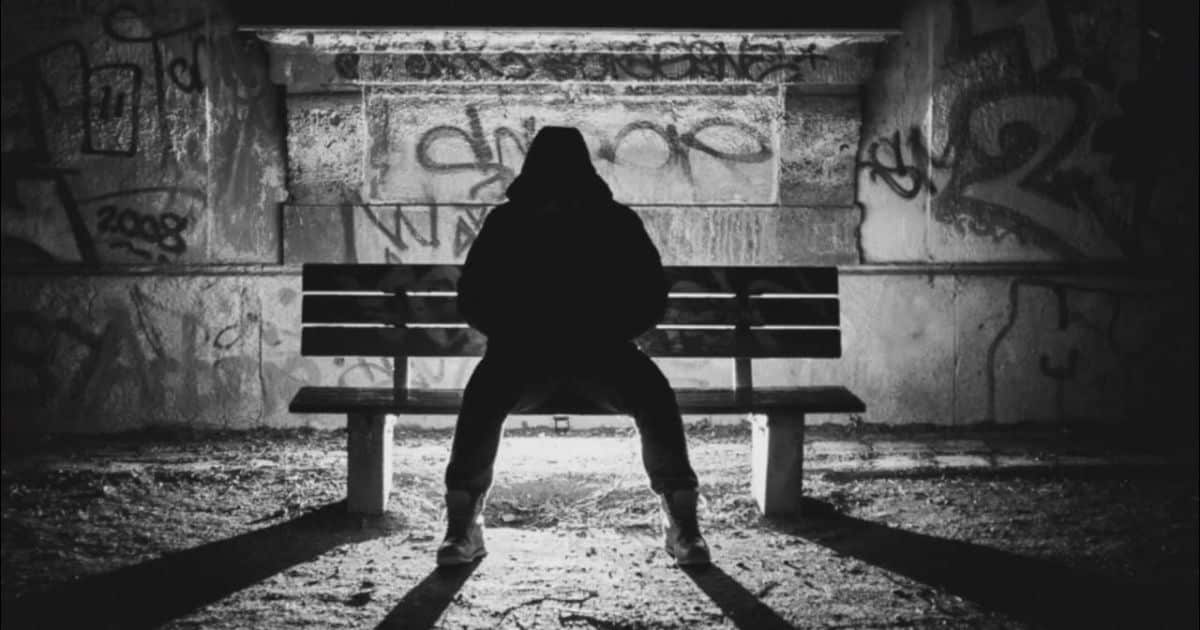In the world of hip-hop, authenticity is everything. From the raw lyrics to the gritty beats, artists strive to portray their true selves to their audience. But what lies beneath the surface? Enter shadow work, a concept that has been quietly making its way into the hip-hop scene, challenging artists to confront their inner demons and embrace their truest selves.
Shadow work in hip-hop is a journey of self-discovery, a process of exploring the darkest corners of one’s psyche and bringing them to light. It is through this exploration that artists uncover their deepest truths, allowing their music to resonate on a whole new level. In this article, we will delve into the world of shadow work in hip-hop, examining how it has become a powerful tool for artists to not only find their voice but also connect with their audience on a profound and authentic level. So, get ready to embark on a journey of self-discovery and authenticity as we explore the depths of shadow work in hip-hop.
Exploring the Connection Between Shadow Work and Hip-Hop
Hip-hop has always been known for its raw and honest storytelling. From the early days of the genre, artists have used their music as a platform to express their struggles, their triumphs, and their realities. However, as hip-hop evolved and became more commercialized, the emphasis on authenticity started to fade. Many artists felt the pressure to conform to a certain image or narrative, sacrificing their true selves in the process.
This is where shadow work comes in. Rooted in psychology, shadow work is the process of exploring and integrating the unconscious aspects of one’s personality. It involves acknowledging and embracing the parts of ourselves that we may have repressed or denied. In the context of hip-hop, shadow work allows artists to tap into their deepest emotions, fears, and vulnerabilities, presenting a more authentic version of themselves to the world.
The Role of Authenticity in Hip-Hop
Authenticity has always been at the core of hip-hop culture. From its beginnings in the Bronx in the 1970s, hip-hop provided a voice for marginalized communities, allowing individuals to express their experiences and speak their truth. The genre thrived on the rawness and honesty of its artists, with listeners gravitating towards those who stayed true to themselves.
However, as hip-hop gained mainstream popularity, it became more about image and success than genuine self-expression. Many artists felt pressured to conform to certain stereotypes and portray a version of themselves that was marketable. This led to a loss of authenticity within the genre, with artists feeling disconnected from their own music and their audience.
Shadow work offers a way for artists to reclaim their authenticity. By delving into their own shadows, they can uncover the aspects of themselves that have been hidden or suppressed, allowing for a more genuine expression of their emotions and experiences. This process not only benefits the artist but also resonates with listeners who are craving music that reflects their own struggles and triumphs.
How Shadow Work Can Enhance Self-Discovery in the Hip-Hop Community
Shadow work in hip-hop goes beyond just creating authentic music. It is also a powerful tool for self-discovery and personal growth within the hip-hop community. By delving into their shadows, artists are able to confront their fears, traumas, and insecurities, ultimately leading to a deeper understanding of themselves.
This process of self-discovery can be transformative for artists, allowing them to heal and grow in ways they never thought possible. It enables them to break free from societal expectations and create music that is truly representative of who they are. As artists become more in tune with their true selves, their music becomes more relatable and resonates with listeners on a deeper level.
Furthermore, shadow work in hip-hop can inspire others within the community to embark on their own journey of self-discovery. By witnessing artists confront their shadows and embrace their authentic selves, listeners are encouraged to do the same. This creates a ripple effect, fostering a community of individuals who are committed to personal growth and authenticity.
Examples of Artists Using Shadow Work in Their Music and Lyrics
Several artists in the hip-hop industry have embraced shadow work and incorporated it into their music and lyrics. One notable example is Kendrick Lamar. Known for his introspective and socially conscious lyrics, Kendrick has been open about his own struggles with self-doubt, depression, and societal pressures. His album “To Pimp a Butterfly” is a prime example of shadow work in hip-hop, as he explores themes of identity, race, and mental health.
Another artist who has used shadow work to enhance his music is J. Cole. In his album “KOD,” J. Cole delves into the shadows of addiction, trauma, and the pressures of fame. Through his introspective lyrics, he encourages listeners to confront their own demons and find healing in their authenticity.
These artists, along with many others, have paved the way for a new era of hip-hop that prioritizes self-reflection and vulnerability. Their music serves as a reminder that embracing our shadows is not only necessary for personal growth but also essential for creating music that resonates with others.
The Impact of Shadow Work on Listeners and Fans
The impact of shadow work in hip-hop extends beyond the artists themselves. It has the power to deeply connect with listeners and fans who are also on their own journey of self-discovery. When an artist authentically shares their own struggles and vulnerabilities, it creates a sense of empathy and understanding in the listener.
Through their music, artists who have done shadow work give voice to the emotions and experiences that are often overlooked or stigmatized. This validation can be incredibly powerful for individuals who may be struggling with their own shadows. It reminds them that they are not alone in their journey and that there is strength in embracing their true selves.
Moreover, the impact of shadow work goes beyond the music itself. It has the potential to inspire individuals to explore their own shadows and confront their inner demons. By witnessing artists who have gone through this process, listeners are encouraged to do the same, leading to personal growth and self-discovery.
Tips for Incorporating Shadow Work Into Your Own Hip-Hop Journey
If you’re an aspiring hip-hop artist or someone who wants to embrace shadow work in your own creative journey, here are some tips to get you started:
- Self-reflection: Take the time to reflect on your own experiences, emotions, and fears. Journaling or meditating can be helpful tools for uncovering your shadows.
- Embrace vulnerability: Allow yourself to be vulnerable in your music and lyrics. Share your authentic self, even if it feels uncomfortable or scary.
- Seek support: Surround yourself with a community of like-minded individuals who are also on a journey of self-discovery. Share your experiences and learn from others.
- Practice self-care: Shadow work can be intense and emotionally challenging. Take care of yourself by practicing self-care activities such as exercise, therapy, or spending time in nature.
- Trust the process: Embracing your shadows is a lifelong journey. Trust that the process will lead to personal growth and a deeper connection with yourself and your audience.
Resources for Further Exploration of Shadow Work in Hip-Hop
If you’re interested in diving deeper into the world of shadow work in hip-hop, here are some resources to check out:
- “The Artist’s Way” by Julia Cameron: While not specifically about hip-hop, this book is a valuable resource for artists looking to tap into their creativity and embrace their authentic selves.
- Podcasts: There are several podcasts that explore the intersection of hip-hop and personal growth. Some notable ones include “The Hidden Brain” by NPR and “The Breakdown with Shaun King.”
- Therapy and counseling: Working with a therapist or counselor can be instrumental in exploring your shadows and uncovering deep-seated emotions and beliefs.
- Hip-hop documentaries and interviews: Many documentaries and interviews with hip-hop artists delve into their personal journeys and the role of authenticity in their music. Some recommended documentaries include “Hip-Hop Evolution” and “Art of Rap.”
The Future of Shadow Work in the Hip-Hop Industry
As hip-hop continues to evolve, the role of shadow work is likely to become even more prominent. The demand for authentic and relatable music is growing, and artists who are willing to confront their shadows have the potential to make a lasting impact on the industry.
Moreover, shadow work in hip-hop has the power to inspire social change. By addressing societal issues, such as racism, inequality, and mental health, artists can use their platform to spark conversations and challenge the status quo. This combination of personal growth and social activism has the potential to shape the future of hip-hop in profound ways.
Conclusion
Shadow work in hip-hop is a powerful tool for artists to explore their inner selves and connect with their audience on a profound and authentic level. It allows artists to tap into their deepest emotions, confront their fears, and ultimately create music that resonates with listeners on a deeper level.
Through shadow work, artists can reclaim their authenticity and inspire others to do the same. It is a journey of self-discovery and personal growth that has the power to transform both the artist and the listener.
So, whether you’re an aspiring hip-hop artist or a fan of the genre, embrace the power of shadow work. Let it guide you on a journey of self-discovery and authenticity, and watch as your music and connection with others soar to new heights.

